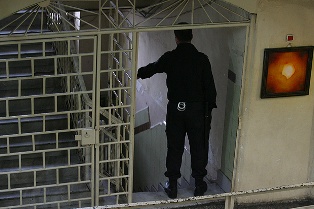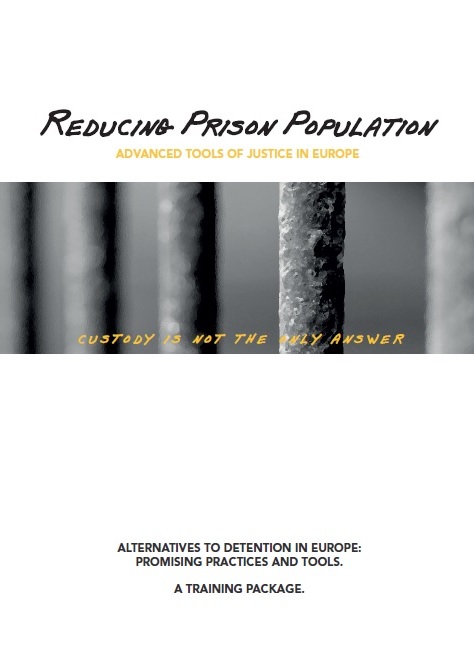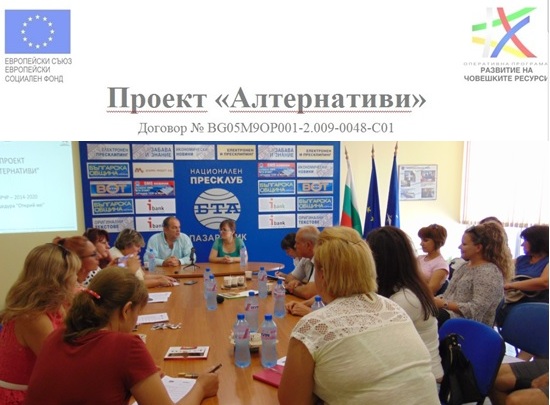Examining workers’ needs of training in the penitentiary system
 Within Project “Specialized Programmes for Work with Individuals with Low Intellectual Capacity and People with Psychiatric Disorders” it was conducted a survey examining the needs of training for specialized programmes for work with people with low intellectual capacity and people with psychiatric disorders in prisons. It was also conducted an analysis of the active training programmes with these target groups in Directorate General “Execution of Punishments” (DGEP) and in the separate prisons. The survey was conducted through inquiries, focus groups, and structured interviews with personnel and managers working at places of imprisonment. There was also a quality analysis of active training programmes conducted in the prisons and available Master’s programmes training specialists for work in the penitentiary system, which are provided by various universities in Bulgaria. On the basis of the received results, the following conclusions were drawn:
Within Project “Specialized Programmes for Work with Individuals with Low Intellectual Capacity and People with Psychiatric Disorders” it was conducted a survey examining the needs of training for specialized programmes for work with people with low intellectual capacity and people with psychiatric disorders in prisons. It was also conducted an analysis of the active training programmes with these target groups in Directorate General “Execution of Punishments” (DGEP) and in the separate prisons. The survey was conducted through inquiries, focus groups, and structured interviews with personnel and managers working at places of imprisonment. There was also a quality analysis of active training programmes conducted in the prisons and available Master’s programmes training specialists for work in the penitentiary system, which are provided by various universities in Bulgaria. On the basis of the received results, the following conclusions were drawn:The initial training of the workers in the penitentiary system is compulsory by law and is conducted in the training centre in Pleven. It is useful but not sufficient. Further qualification and trainings of the workers in the penitentiary system are most often related to increasing their competence in foreign languages, psychology, and computer literacy. These are rather a result of a personal initiative and not a purposeful and systematic policy by DGEP and they are rarely related to the nature of the everyday professional activity or to the peculiarities of the contingent.
There is a clear need of a more thorough training focused on improving the social-educational activity with individuals with low intellectual capacity and individuals with psychiatric disorders, crisis interventions, overcoming conflicts, etc.
There is a clear need of creating and developing a system for a continuing training and qualification of the workers, characterized by regularity, proper thematic structuring, and adequacy in terms of their needs and necessities.
Basic characteristics of the initial and the continuing professional training are the necessity of subjects related to work with individuals with psychiatric disorders including people addicted to psychoactive substances, people with peculiarities in their behavior which have negative effect on their integration in the community and on their serving the term of imprisonment, as well as people with conspicuous low intellectual capacity.
Another need which has been pointed out is the preparation in organizing and conducting an individual and group work with people with low intellectual capacity and people with psychiatric disorders.
The workers in the penitentiary system are expected to be practically oriented for the most part and the trainings are expected to be conducted by people who have experience in the penitentiary system and in the corrective programmes applied in DGEP.










